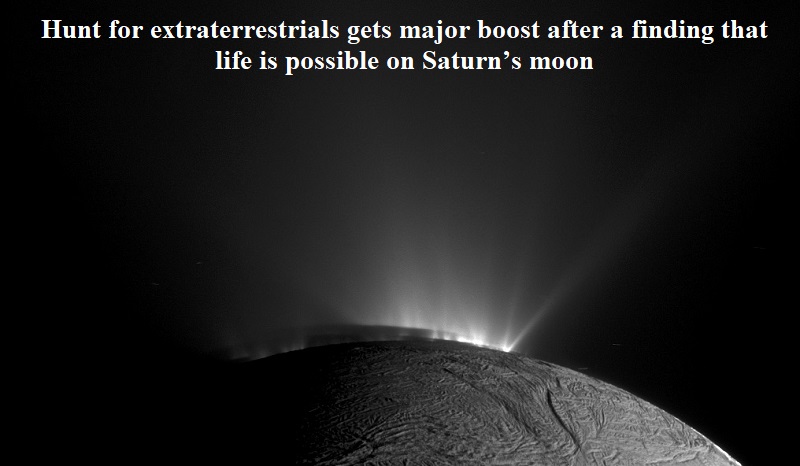
The quest for extraterrestrial life has always captivated human curiosity, leading to the launch of various programs and missions. Recently, scientists have received a significant boost in their search as they believe that one of Saturn’s moons possesses all the necessary ingredients for life.
According to researchers, Saturn’s moon Enceladus harbors phosphorus, a crucial component for the development of life, beneath its icy surface in its ocean. This discovery was made using data collected by NASA’s Cassini mission, which revealed that phosphorus was trapped within ice grains rich in salt and ejected into space from Enceladus.
The study, published in the journal Nature on June 14, was accompanied by a report on NASA’s official website. The Cassini mission, launched in 2004 to explore Saturn, its rings, and moons, concluded in 2017 when the spacecraft was deliberately burned up in the planet’s atmosphere.
Enceladus, the sixth-largest moon of Saturn, is predominantly covered by pristine, reflective ice. While the outer layer is encased in an icy crust, the inner layer holds an ocean. Some scientists speculate that this ocean may serve as a potential habitat for extraterrestrial life, making Enceladus an exciting prospect in the search for life beyond Earth.
The presence of a subsurface ocean on Enceladus results in water erupting through cracks in the icy crust, forming geysers at its southern pole. These geysers create a plume that feeds icy particles into Saturn’s E ring, a faint ring located outside the brighter main rings.
During its mission, Cassini flew through the plume and E ring on multiple occasions, allowing scientists to analyze the ice grains from Enceladus. These particles were found to contain a rich assortment of minerals and organic compounds associated with life as we understand it, according to NASA.
Christopher Glein, a co-author of the study from the Southwest Research Institute, described the discovery as a “stunning” advancement in astrobiology, emphasizing the abundant presence of phosphorus in the plume ice samples originating from Enceladus’ subsurface ocean.
Phosphorus plays a critical role in life as a building block of DNA, which forms chromosomes and carries genetic information. It is also present in the bones of mammals, cell membranes, and ocean-dwelling plankton. Prior to this finding, phosphorus had not been detected beyond Earth, and its presence in Enceladus’ ocean marks a significant revelation, as stated in NASA’s report.
Frank Postberg, a planetary scientist at Freie Universität Berlin and the lead researcher of the study, highlighted the previous identification of a diverse range of organic compounds in Enceladus’ ocean. He further noted that the recent discovery unveils a clear chemical signature of substantial amounts of phosphorus salts within the icy particles ejected into space by the moon’s plume, marking the first time this essential element has been detected in an extraterrestrial ocean.

Post Your Comments